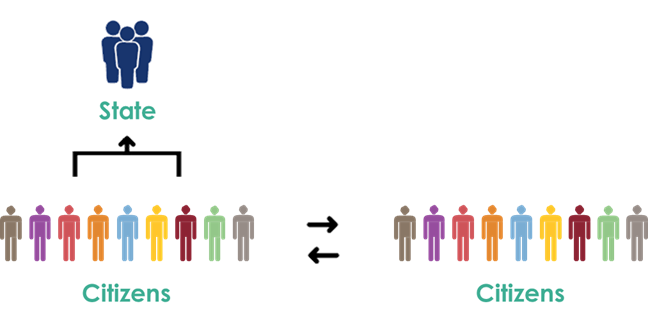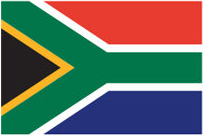Supplementary information
What does active citizenry mean?
Active citizenry means different things to different people. Ultimately, it refers to a country’s citizens playing an active part in building and shaping the country they would like to live in.
It operates in two main directions:
- Vertically: citizens engaging with the state
- Horizontally: citizens engaging with each other (including civil society and community-based organisations)

South Africa’s National Development Plan describes active citizenry as a two-way process of shaping South Africa’s policy and governance landscape. It also points to a strong relationship between the ‘civic duty’ of active citizenry and government accountability and responsiveness.
The success of government rests on the ability of all members of the whole accountability ecosystem to work together and do their parts – including citizens.
In short, active citizenry is crucial to ensure that leadership is held accountable.
So what can you, as a citizen, do?
When government spending is unauthorised, irregular, or fruitless and wasteful, it is citizens’ tax money that is being misused.
If you as a citizen of South Africa are unhappy with the way any government department, municipality, public entity or municipal entity is spending public funds, you have the right and the power to speak up and demand accountability to ensure that public funds are used responsibly.
Here are a few suggestions for how you can make your voice heard:
Attend and ask questions during government’s public meetings such as Taking Parliament to the People, which is run by the National Council of Provinces and held in a different province every year. It includes public meetings where citizens can talk about their experiences of government service delivery and related matters.
Write petition letters requesting the legislature in your province to ensure that the provincial departments spend public money properly and that action is taken against those who do not. Each provincial legislature has a petitions office that receives and processes petition letters from members of the public.
Get involved in provincial legislature meetings where discussions on provincial strategic plans, annual performance plans, budgets and annual reports take place.
Participate in the integrated development plan consultation meetings in your region and engage with your municipality’s leadership on service delivery issues and infrastructure developments and service delivery plans for your ward.
Participate at local government level by attending ward committee meetings.
Participate in civil society or community-based organisations’ meetings.
Other pages in this section:
Other pages in this section:

